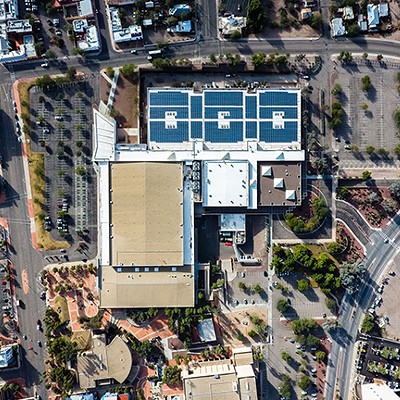But supporters of the package are making a last push to convince the Legislature to put the proposal on the ballot this November.
"I'm not telling you it's not an uphill climb, but I'm optimistic," says Ed Fox, a vice president with the Maricopa County utility Arizona Public Service Co., and former director of the state Department of Environmental Quality.
The proposal on the table is not only complex--some hundred pages of new law, in addition to a 20-page constitutional amendment that would require voter approval--but also controversial.
Supporters of the reform seek to resolve the long-simmering debate over 9.3 million acres of land given to Arizona at statehood to be held in trust for a variety of beneficiaries, primarily education.
When the land was first doled out roughly nine decades ago, the notion of protecting environmentally sensitive land wasn't at the top of the agenda, so the parcels were simply laid out in an efficient checkerboard across the state. Today, some of those parcels contain pristine land or other treasures that merit conservation.
But the state Constitution calls for the land to be disposed of at its "highest and best use," which has generally been defined as high-density residential and commercial development. That makes the State Land Department the biggest land speculator in Arizona.
Much of the land is ripe for the plucking--just last week, 276 acres of state land in Maricopa County was auctioned off for more than $100 million.
The debate brings together several groups that have a stake in the future of the land: environmentalists, who want to preserve sensitive parcels; developers, who see a steady supply of land for future subdivisions; teachers, who want to see the land provide more funding for education through investment; ranchers, who want to preserve their leases to graze on rural parcels of state land; and other groups, with yet other agendas at work.
The debate over state land has been underway for most of the last decade, with voters rejecting a legislative plan in 2000 after environmental groups complained it didn't do enough to conserve prime wilderness.
In the three-plus years since that plan was defeated, teachers, developers, conservationists, ranchers and others have been meeting to hammer out a new compromise. At more than 100 pages, the plan is heavy in details, but the broad strokes include setting aside a small percentage of the land for conservation, while streamlining the process of auctioning off other parcels for development. It would also allow land swaps between state and federal government and make it easier for ranchers to renew grazing leases.
It's those last two conditions that have led to a split in the environmental community. Although the plan has the support of the Arizona League of Conservation Voters, the Arizona Nature Conservancy and the Grand Canyon Trust, local groups such as the Coalition for Sonoran Desert Protection and the Tucson Audubon Society have opposed it.
Sierra Club lobbyist Sandy Bahr complains that the package is too complex for lawmakers to simply accept and put on the ballot. She is troubled by the provisions regarding grazing leases and land swaps.
Luther Propst, of the Sonoran Institute, who supports the reform proposal, says the deal is the best that environmentalists are likely to get, especially since the education interests have linked up with the development community.
It appears that the two sides will have plenty of time to hash out the issue. While Fox takes heart from the fact that leaders in both chambers say they'll allow hearings on the package, neither is promising a swift resolution. As the legislative session drags through its 19th week, most lawmakers are eager to pack up and go home, especially with the deadline for them to deliver petitions to qualify for the ballot looming. The time crunch makes it increasingly unlikely lawmakers will be up for a special session to put the plan on the ballot before July 1.
Bahr says she'd like to see the plan delayed so it can be debated and amended before voters see it in 2006.
"What's the rush?" Bahr asks.
Fox fears that if the plan doesn't reach the ballot this year, his coalition might split, or voters could see dueling proposals in 2006.
Does Bahr imagine the Sierra Club or other groups could run their own ballot initiative concerning state land?
"I think people will definitely look for an alternative," says Bahr. "This is not a good package. It's cumbersome; it's not good public policy. It's not good for conservation."

















